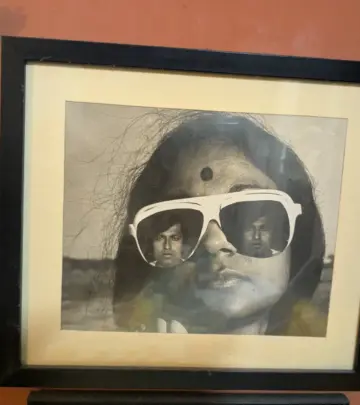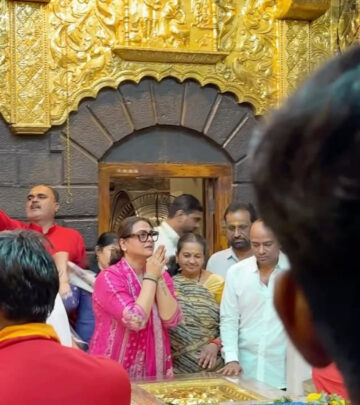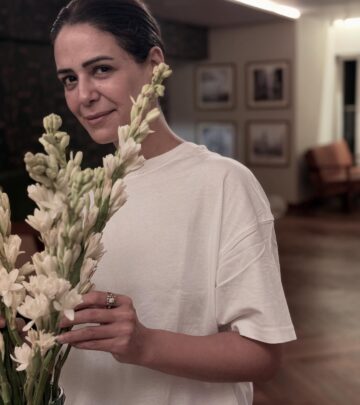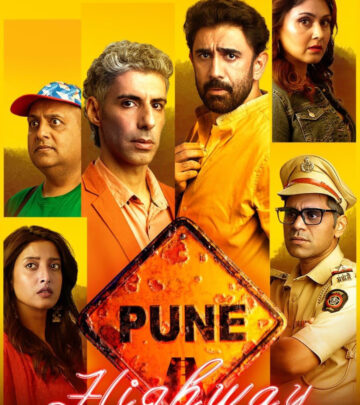Swastika Mukherjee Joins Voices Calling For Compassionate Change In Animal Welfare
Swastika Mukherjee champions compassion over cruelty.
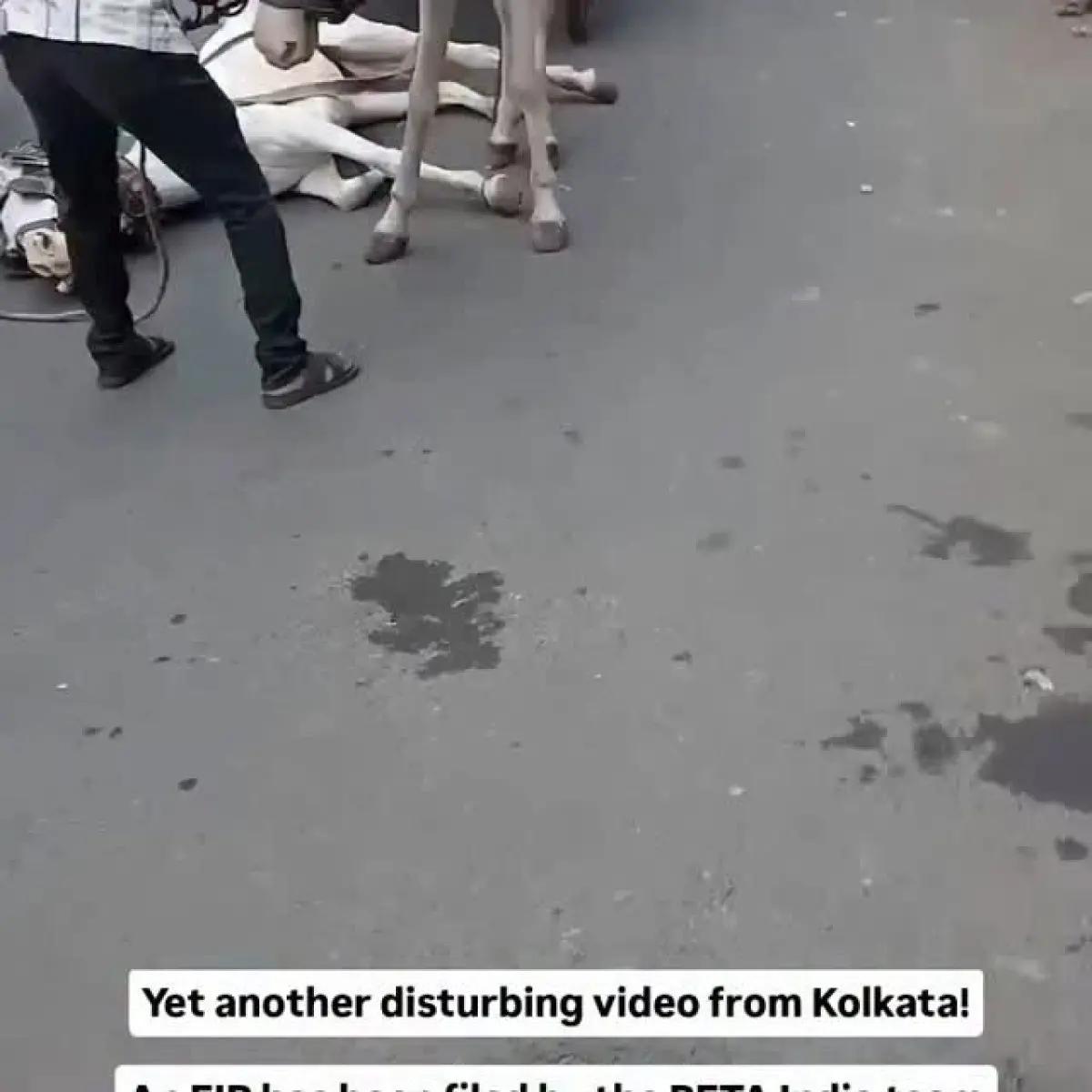
Image: Instagram
In the bustling streets of Kolkata, a heart-wrenching incident has sparked a renewed debate over animal welfare in traditional carriage rides. A horse, long subjected to exhausting labor and now clearly suffering, collapsed during a routine carriage ride, leaving bystanders in shock and igniting calls for change among public advocates and animal lovers alike.
Incident Overview
The incident, which unfolded during a routine joyride, has brought to light the harsh realities faced by animals used in such traditional forms of transport. The caption accompanying the widely circulated Instagram post, which reads “How is this entertainment? It’s cruelty in plain sight,” paints a vivid picture of the emotional and physical toll these animals endure. The post strongly criticizes the system that forces these majestic creatures to work in conditions that result in trauma, exhaustion, and even physical collapse.
Witnesses at the scene have reported that the horse, clearly in distress, had been working under conditions it could no longer withstand. As the animal collapsed, onlookers called for immediate action. An FIR has already been filed, signaling that authorities cannot ignore the mounting pressure from animal welfare groups and the general public. The photograph shared on Instagram—capturing the stark moment of collapse—is a damning reminder of the cruelty concealed behind what is often dismissed as entertainment.
Authorities And Activists Respond
Several prominent figures in the entertainment sphere have joined the outcry. Notably, acclaimed actress Swastika Mukherjee, known both for her work on screen and her advocacy for progressive causes, has lent her voice to the movement. Her involvement underscores how the welfare of animals transcends the realm of activism, touching the hearts of celebrities and the general public alike. Critics argue that it is time to discard outdated practices and adopt technologies that are both eco-friendly and compassionate.
Local animal rights activists have rallied around the incident, urging Kolkata authorities to revisit and reform practices associated with horse-drawn carriage rides. Their message is unambiguous: the traditional methods, while culturally significant, risk the well-being of innocent animals. The widely spread call for a transformation in the system includes adopting heritage-style e-carriages, similar to what was recently implemented in Mumbai. Such electric alternatives promise to preserve the cultural charm of traditional rides without compromising on the ethical treatment of animals.
A Call For Change: Heritage Electric Carriages
Animal welfare advocates have pointed to Mumbai’s recent switch to heritage e-carriages as a pioneering model that other cities, including Kolkata, can follow. The suggestion is more than symbolic; it offers a practical blueprint for modernizing an age-old tradition without losing its cultural essence. E-carriages, which run on electric energy, eliminate the need for live animals to bear the burden of continuous labor and ensure that the beauty of heritage is celebrated without cruelty.
The proponents of this change emphasize that this is not simply a technological upgrade, but an urgent moral imperative. “It’s time we modernize with compassion,” the Instagram post proclaims. For many, this call to action resonates deeply—an appeal to rethink traditional norms and embrace alternatives that do not sacrifice the well-being of sentient beings for the sake of nostalgia or profit.
Physical And Emotional Toll On Working Horses
Beyond the immediate physical injury, incidents like this raise broader questions about the emotional and psychological impacts on working animals. Horses, known for their loyalty and strength, are often viewed as symbols of grace and endurance. However, the relentless demands placed on them in the name of tourism and tradition can lead to chronic stress and physical decline. In Kolkata, where carriage rides have long been a part of the city’s fabric, this incident serves as a stark reminder that what was once acceptable may no longer be justifiable.
Supporters of the proposed reforms argue that cultivating an environment of empathy and care can help mitigate such incidents in the future. By transitioning to electric carriages, cities can ensure that animals are spared the dire consequences of overwork and harsh conditions. Advocates maintain that even as we celebrate cultural history, there is a pressing need to evolve and adopt practices that prioritize kindness over convenience.
Public Reaction And Broader Implications
Social media has played a critical role in amplifying the outrage over this incident. With hashtags like #animalwelfare, #horseriding, and #AnimalRescue trending alongside the post, it is clear that the public is receptive to change. The powerful imagery and concise yet provocative caption have spurred discussions across multiple platforms, drawing attention not only to the specific case but to a systemic issue that impacts countless animals.
The growing chorus of voices—from conscientious citizens to influential figures—demands accountability from those in power. In a society increasingly attuned to ethical and environmental concerns, the call to revisit and reform the way animal labor is utilized in tourism and transport cannot be ignored. This incident in Kolkata is emerging as a catalyst for what might become a broader movement towards humane and sustainable alternatives in traditional practices.
Looking Forward: Reimagining Tradition With Compassion
The road ahead calls for a balanced approach that honors cultural heritage without ending in the sacrifice of animal well-being. By drawing on successful models such as Mumbai’s implementation of heritage-style e-carriages, Kolkata has the opportunity to lead by example. Reforming the system would not only alleviate the suffering of countless horses but also set a precedent for other cities grappling with similar issues.
The collapse of a horse during a carriage ride in Kolkata is more than a single incident; it is a clarion call for change within a system that no longer serves its subjects—animal or human—with dignity and care. As advocates push for the adoption of heritage e-carriages, the hope is that future generations can enjoy the legacy of tradition without the dark shadow of cruelty. This transformative moment invites both the authorities and the public to redefine entertainment and heritage with compassion at its core.
While the immediate focus is on resolving this distressing case, the broader implications of such incidents hint at a needed evolution in the cultural treatment of animals. The ongoing dialogue promises to reshape public policy and societal values alike, solidifying the message that modern technology and traditional allure can coexist, provided the welfare of all is centrally valued.
Read full bio of Glendon Moss




